5 Happy Hormones and How Boost Them Naturally
A study published in Psychological Science in 2008 found that certain inherited genes seem to account for 50 percent of our happiness. But even if your natural tendency is to be more down than up, you can make choices that will help you experience a brighter, happier life.
1. Dopamin
This happy hormone is a neurotransmitter that drives your brain’s reward system. If you are praised at work for doing a good job, you’ll get a delicious dopamine hit, resulting in feelings of well-being. It also drives pleasure-seeking behaviour. Boost it by setting realistic goals (e.g., tidying your desk or sticking to your workout schedule) and achieving them. And seek out pleasurable healthy activities that have a positive impact on your life.

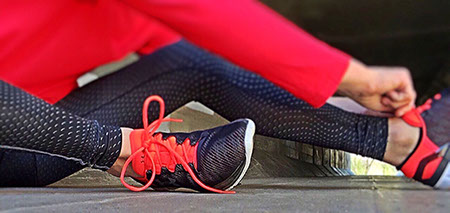
2. Serotonin
This mood-boosting neurotransmitter was made famous by SSRI (selective serotonin reuptake inhibitor) antidepressants, which increase the brain’s serotonin levels. The most effective and natural way to boost serotonin is by exercising daily; that’s one reason a brisk walk does wonders for your mood. Just take 10 minutes out of your day and complete one of our resistance band workouts.
3. Oxytocin
Both a neurotransmitter and a happy hormone, oxytocin is often called “the love hormone.” Researchers from Claremont University in California have done extensive research on its impact on women, linking oxytocin release to life satisfaction levels. It may play a greater role in women’s physiology and happiness compared to men’s. Spending time with loved ones and being kind to others stimulates oxytocin. Don’t you feel good just reading that?
4. Estrogen
This happy hormone helps form serotonin and protects you from irritability and anxiety, keeping your mood steady. Estrogen decreases with menopause, and lifestyle factors such as smoking and extreme exercise can also lower it. The estrogen/progesterone imbalance in perimenopause can also negatively affect mood. Stress management can balance them, since stress hormones, such as cortisol, interfere with the secretion, action and function of the two happy hormones.
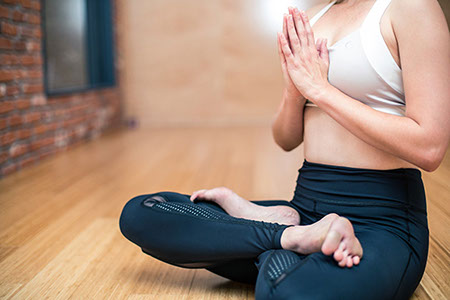
5. Progesterone
This helps you to sleep well and prevents anxiety, irritability and mood swings. Levels of this happy hormone drop as women enter perimenopause after age 35 or 40, and this can be accelerated by excess stress and unhealthy foods. Experts such as Dr. Sara Gottfried, author of The Hormone Cure, say taking care of yourself and eating right is your first defence for balancing hormones before trying hormone replacement therapy, including bioidentical progesterone and estrogen. Talk to your doctor to learn more.

Natural ways to boost your happy hormones
Music
Listening to music is a fabulous way to get a hit of dopamine: In a 2011 study published in Nature Neuroscience, McGill University researchers reported that listening to music you love (especially if it gives you “chills”) creates a boost in feel-good dopamine.
Eat carbs
Carbohydrates increase serotonin levels, which partly explains why we crave sweet, starchy foods when we are feeling down. For the best mood boost with the least negative impact, choose healthy, high-fibre sources of carbs such as dense whole-grain bread or quinoa.
Spend time with loved ones
Get a boost of oxytocin by doing pleasurable things such as spending time cuddling with your partner, your kids or your pet(s), rather than spending time on social media. (Here are more health benefits of cuddling.)
Stress relievers
Increase estrogen with stress-relieving activities such as yoga, meditation, taking a hot bath — or whatever works for you. Plus, keep progesterone at optimum levels by eating well and avoiding saturated fat and sugar, getting regular physicals and avoiding stress.
Source: Besthealthmag
The never-ending nightmare of sweaters! Are sweat and odor really unsolvable?
How to choose between antiperspirant and deodorant
If you want to control sweating and avoid underarm wetness, you should use an antiperspirant. But if you don't sweat excessively, and just want to limit body odor and smell fresh, deodorant is all you'll need.
Of course, if you use an antiperspirant to regulate your sweating, you'll also reduce body odor — remember, odor is a byproduct of sweat and bacteria.
In fact, according to a small 2005 study published in the Journal of the American Academy of Dermatology, both deodorants and antiperspirants can be effective at controlling body odor.
The study included 53 male participants who completed a 12-day conditioning period in which they didn't use either deodorant or antiperspirant. They then entered into a five-day treatment phase in which they used antiperspirant on one armpit and deodorant on the other.
Researchers rated their body odor at 12 and 24 hours after the first, third, and fifth days of treatment. After five applications, the antiperspirant reduced odor by 29% at 12 hours, and the deodorant reduced odor by 27% at 12 hours.
Both antiperspirants and deodorants are considered safe products — though antiperspirants may have health risks for people with advanced kidney disease.
People with kidney function of less than 30% may not be able to clear the aluminum in antiperspirants out of their system efficiently. The FDA requires antiperspirant labels to carry a warning for those with kidney disease to consult with their doctor before use.
For those without kidney disease, antiperspirants do not pose a health risk and are not harmful for people with or without hyperhidrosis to use, Mian says.
Try a combined antiperspirant and deodorant, all-in-one
If you struggle with both body odor and sweating, there are products on the market that have both deodorant and antiperspirant functions.
Most combination products will say antiperspirant and deodorant, but if it isn't clear, check the ingredients. An antiperspirant will have aluminum listed as an active ingredient. Deodorants usually don't contain aluminum, but do have antibacterials, like alcohol or baking soda.
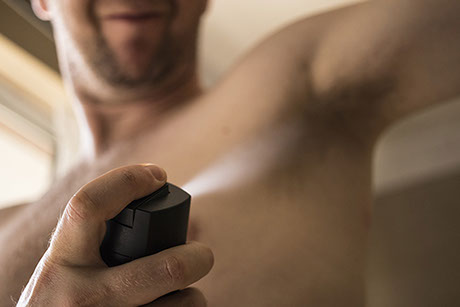
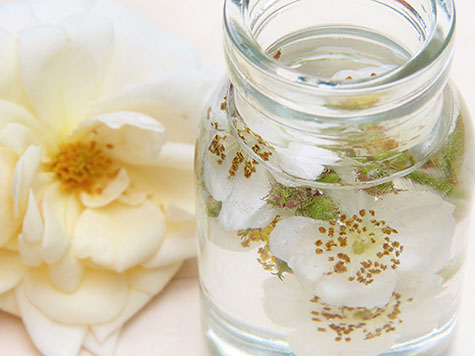
If you choose to use both products separately, you should apply the antiperspirant first on clean, dry skin, preferably at night before bed, which will give the antiperspirant time to activate overnight, Mian says. For best results, apply deodorant in the morning.
Both antiperspirant and deodorant can help you control sweating and body odor. Deodorants reduce body odor, while antiperspirants decrease underarm wetness and regulate sweating.
You may find that your needs change depending on the day and whether you're exercising or spending a lot of time outside. Different levels of sweating might require different antiperspirant strengths. For more intense sweating, you could try a product labeled as extra or clinical strength, or discuss prescription antiperspirant options with your doctor.
Source: The Insider
Is Walking the new miracle cure?
Walking can prevent and treat a myriad of health conditions, has no side effects and is available free of charge.
Here’s more on why walking is a wonder drug
It’s true, a brisk walk can cure many ills. Numerous studies show that walking reduces the risk of certain cancers, heart disease and stroke, lowers blood pressure and aids in weight loss. Walking can also alleviate arthritis pain, stave off osteoporosis, improve energy levels and make people happier.
‘Walking is the number one exercise in North America, and just about everyone can do it,’ says John Stanton, founder of the Running Room, which hosts walking clinics across the country. The benefits of walking and running are the same: The fundamental differences are that walking takes a bigger investment of time and there are fewer injuries, since there’s less impact on muscles and joints. ‘We used to consider walking the gateway to running, but we found lots of people just wanted to walk,’ says Stanton.
Kim DeLisle knows the power of walking. The retired military veteran from Barrie, ON suffers from post-traumatic stress disorder (PTSD) and began walking with a Running Room clinic three years ago. She is now one of the leaders of the Barrie Walkers, a group of women between the ages of 48 and 65 who meet three times a week for exercise and group ‘therapy.’ ‘Before I joined I was haphazard in my physical activity, but now I am consistent, disciplined and stronger. I also feel more confident and empowered ‘ two things that were severely impacted by my mental health struggles and the loss of my career. The simple movement of walking is so powerful: When I am out of the house, I am engaged in the world and supported by a group of amazing women.’
If you need more excuses to get fitted for walking shoes, read on:
Walk away from disease
You can walk your way to better health: In the 2013 National Walkers’ Health Study, published in the Journal of the American Heart Association, researchers looked at 15,045 walkers and found that brisk walking can lower the risk of high blood pressure, high cholesterol and diabetes. And, according to researchers, the more people walked, the more their health benefits increased.
Walking is also a proven cancer fighter. The American Cancer Society reported that an hour of daily walking may reduce a woman’s risk of getting breast cancer by 14 percent, while a study published in the British Medical Journal showed that physical activity reduces the risk of colon cancer in both men and women. And, according to the American Heart Association, walking briskly for up to 30 minutes can prevent and control high blood pressure that can lead to stroke, reducing your risk by up to 27 percent. All of these huge health payoffs are just the beginning ‘ and they’re no big surprise to many medical experts.
Walking also keeps you mentally sharp: According to a University of California study of 6,000 women aged 65 and older, age-related memory decline was lower in women who walked more. There have also been several studies that show that walking lowers the incidence of dementia and Alzheimer’s disease.
Source: Best Health Magazine
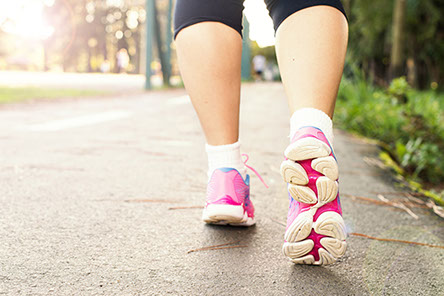

Copyright © Rituel de Beaute 2021.